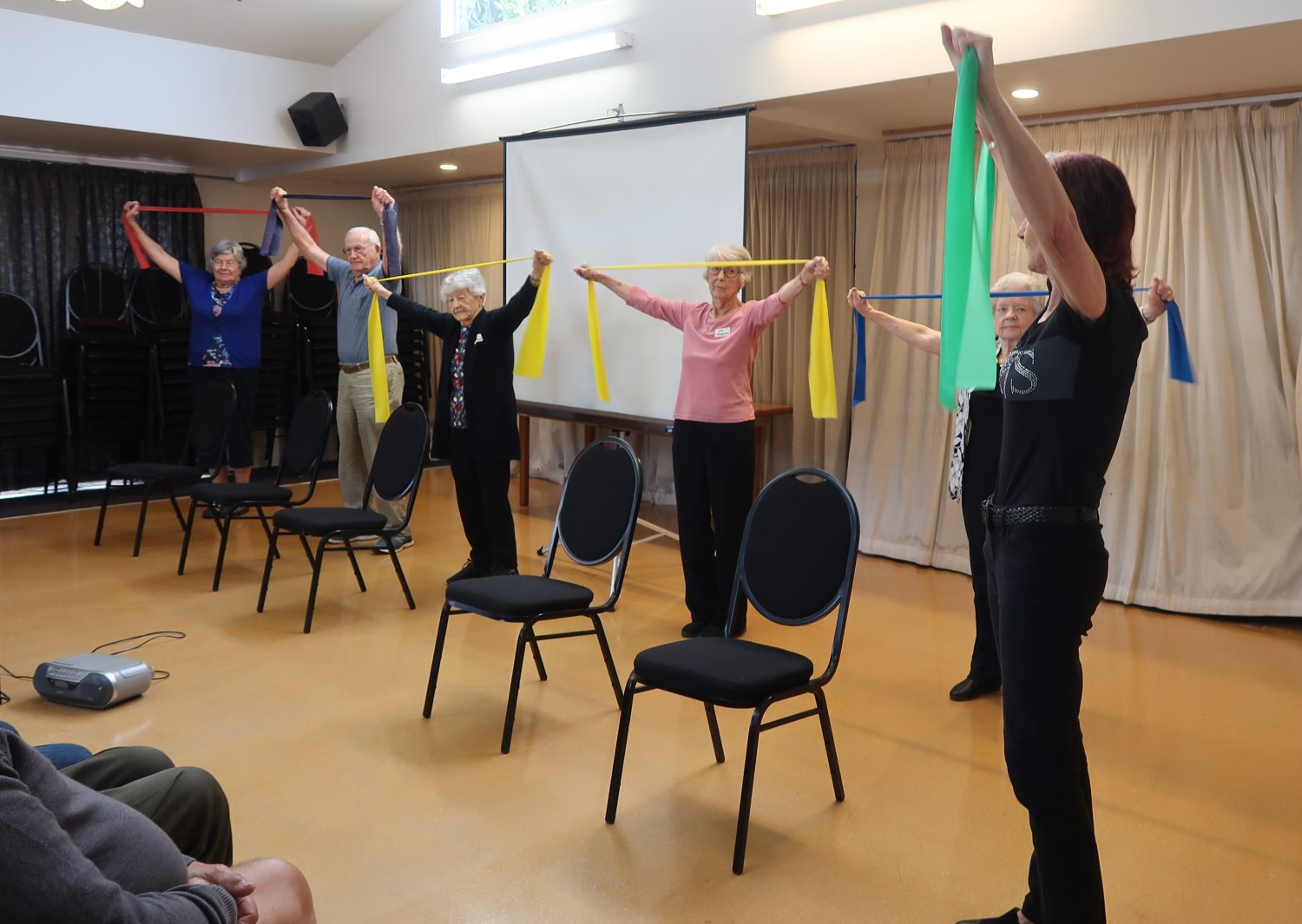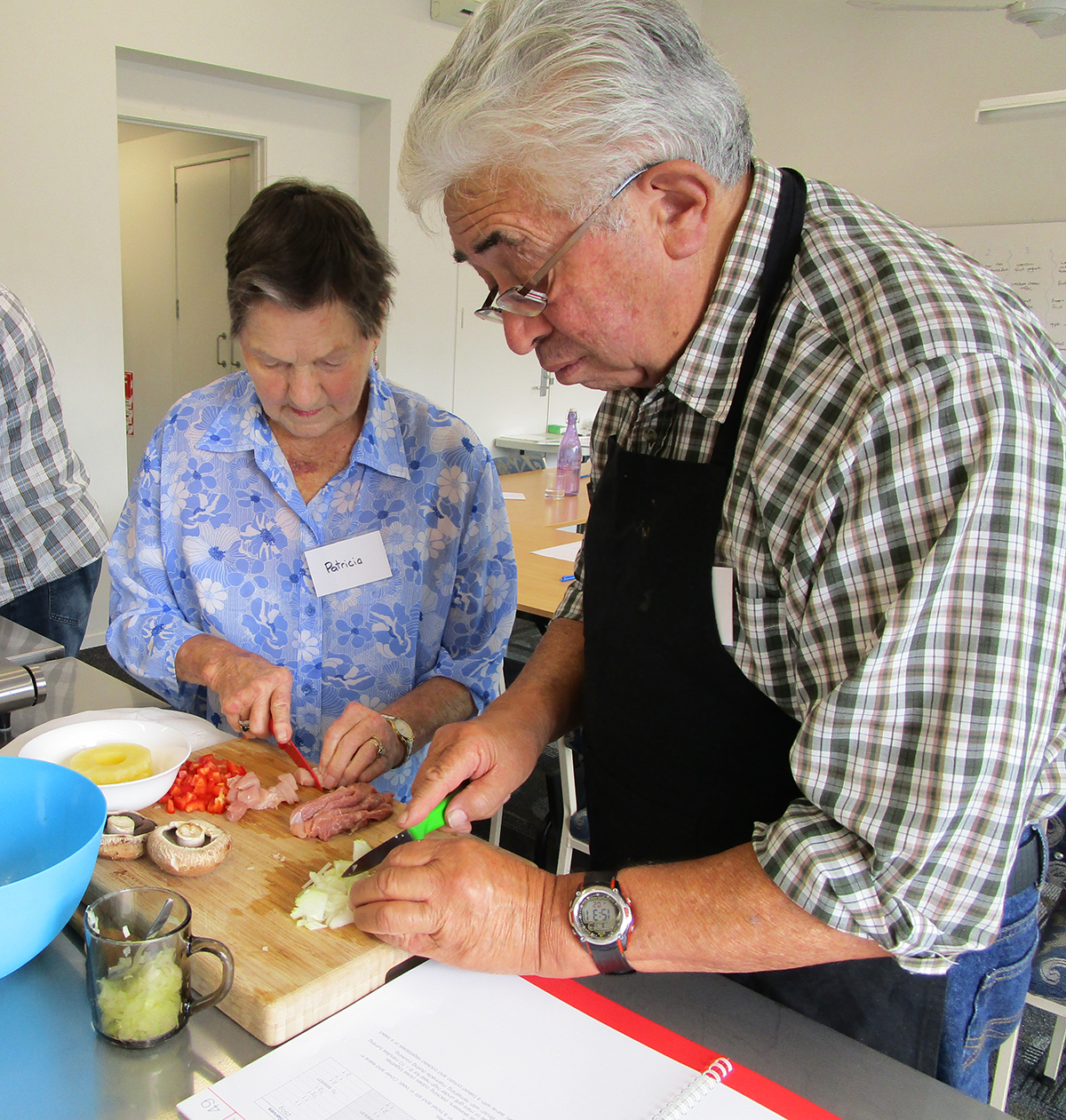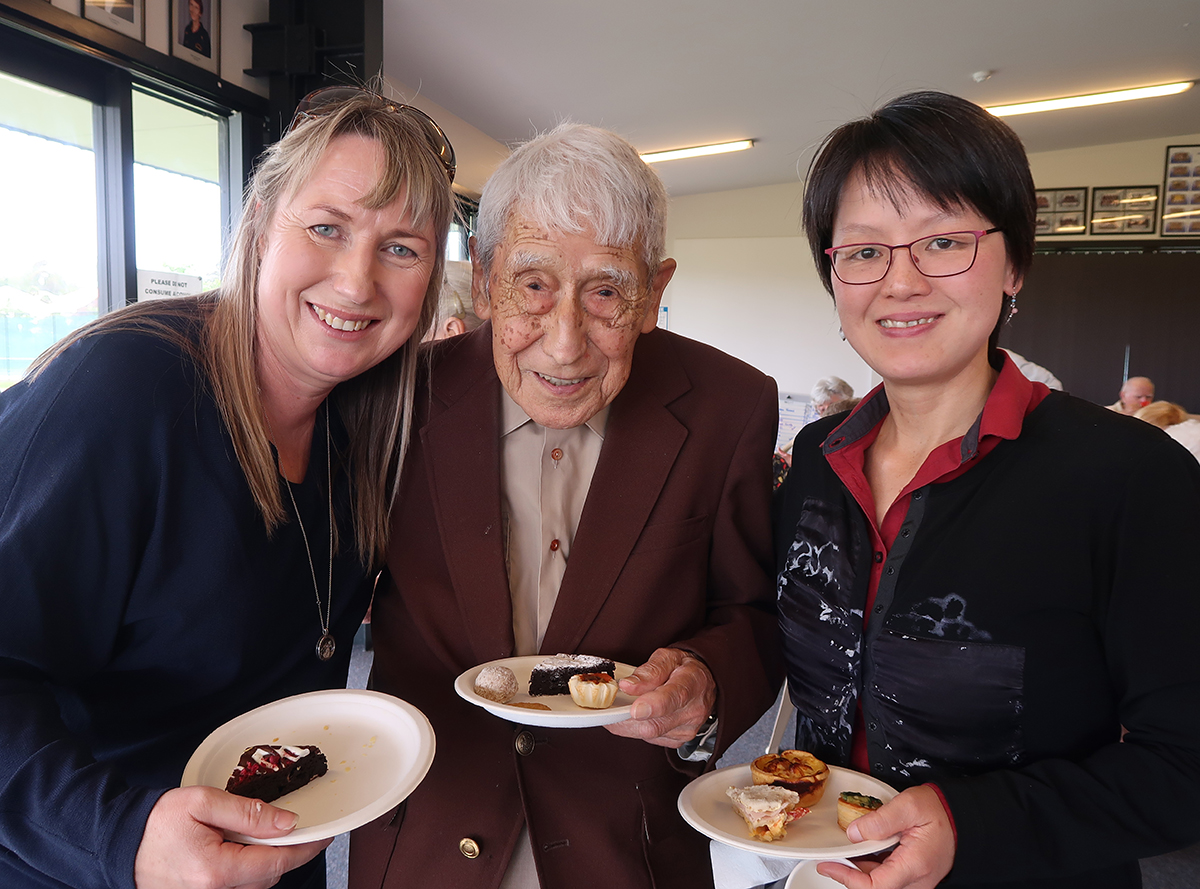Becoming frail, it is often thought, is part of growing old. Part of the inevitable decline that happens as we enter the twilight years. Brittle bones are more susceptible to breaks, and atrophying muscles struggle and strain to perform once-simple functions.
Frailty is actually a complex medical condition that is usually a harbinger of poor health. And although frailty affects people of varying ages, it is more common in older adults, who are most suspectable to the knock-on effects, especially falls. Frail older adults have higher levels of disability and often need significant healthcare.
But what if we could stave off frailty?
What if we could encourage healthy and active ageing to maintain older people’s independence?
Finding novel and meaningful ways to stop the advance of frailty is a top priority for Ageing Well. New Zealand 84 already boasts programmes designed to prevent frailty, and two such classes have become very popular with seniors. They are Age Concern Otago’s Steady As You Go (SAYGO) and the Canterbury District Health Board’s Senior Chef.
SAYGO, established in consultation with the University of Otago, is a 10-week peer-led strength and balance exercise programme for people over the age of 65 living independently in the community. Senior Chef is an 8-week cookery course for people over 60, who want to improve their cooking skills. Both courses aim to improve older peoples fitness and nutrition respectively.
How effective are these programmes? And, if they are effective, should they be rolled out more widely or in concert? Ageing Well Principal Investigator, Dr Ruth Teh, wanted to subject these promising programmes to a rigorous scientific evaluation.
First, she assessed what the programmes did to promote health and wellbeing. Then, her research team sought to analyse whether the programmes were costeffective when compared with other interventions—or the cost of doing nothing.
Dr Teh, a Senior Lecturer at Auckland University, credits her grandmothers for her fascination with older people’s health: “My maternal grandmother encouraged me to advance my studies, and my late paternal grandmother inspired me to do research with older people.”
With her strong role models as a guide and “case studies”, Dr Teh developed an interest in finding ways to ensure older adults enjoy a good quality of life: “It is most rewarding to hear how the research we are doing makes an impact in an older person’s life; the smiles on their faces [during the courses] are just priceless.”
How effective are these programmes? Ageing Well Principal Investigator, Dr Ruth Teh, wanted to subject these promising programmes to a rigorous scientific evaluation.
Undertaking a rigorous scientific experiment, known as a Randomised Controlled Trial, older adults from several sites across New Zealand were randomly selected to participate. All participants were “pre-frail”, which means they were not suffering from any of the adverse effects of frailty. They were then placed into one of four groups: SAYGO; Senior Chef; SAYGO and Senior Chef; or a socialising group.
After the participants completed their respective programmes, they underwent four follow-up assessments: one immediately after the trial, and the rest at 6, 12, and 24 months respectively.
The early results are promising. SAYGO participants demonstrated better balance, gait, and strength after their programme; Senior Chef participants displayed improved cooking skills and a better understanding of food and nutrition. An unexpected benefit was that study participants treasured the “camaraderie” and increase in social networks that the courses created.
The courses have transformed the lives of many of the study participants. “It’s opened up a whole new world for me,” recalls John, a participant in the study’s food and nutrition course, Senior Chef. Before the course, John’s cooking skills were rather limited. Aside from “mashing potatoes” and “frying fish” most cooking had fallen to his wife.
“I was basically lost in the kitchen”, John relates. The Senior Chef course changed all that. Not only was it “enjoyable” but it “made you want to learn.”
Participants engaged in discussions about nutritious food— vegetables, dairy and protein, as well as food labels, were now all on John’s radar. Putting their newfound knowledge to use, participants worked together to prepare and share meals, all under the watchful eye of an experienced instructor.
 “I was basically lost in the kitchen”, John relates. The Senior Chef course changed all that. Not only was it “enjoyable” but it “made you want to learn.”
“I was basically lost in the kitchen”, John relates. The Senior Chef course changed all that. Not only was it “enjoyable” but it “made you want to learn.”
In addition to learning how to prepare meals, there were great social benefits too: “I enjoyed mixing with everyone” John says.
Two or three times a week now, John prepares meals. Shopping at his local butcher he’s trying new chicken cuts and thinking about pairing food: “I ask them, well if I bought that type of cut, what vegetables would I put with it?”
A recipe book was created by study participants which John describes as “perfect…it’s simple, easy to read and takes you through all the steps you need in each recipe”. He has now gone well beyond the lessons he learned on the course. On one occasion, with the help of the Google search engine, he bought some King Prawns “and I cooked them with a mixture of butter, oil, garlic and chillies and they were divine”. Not bad for a man whose previous specialty was mashed potatoes.
Armed with his new nutritional knowledge, John is not looking back: “I guess I can say that all the information, all that I’ve learned at Senior Chef is in my head now and it’s not going to go away”.
Beverly was part of the SAYGO course. As a keen gardener, she came into the course with an overinflated sense of her own fitness, she recalls. “I thought I was too fit to do exercise. It had never occurred to me to do anything more than gardening, which I do quite a bit of. I didn’t go to a gym or anything like that.”
After starting the balance and strength classes, Beverly learned that “my balance was so poor” and that she lacked muscle strength. The unexpected revelations spurred her to put in the hard yards. Not only did she attend all 10 sessions of the SAYGO programme, she also started practising exercises at home.
With a new exercise regimen, Beverly noticed amazing improvements. At the beginning of her programme, for instance, she could complete six sit-to-stand repetition exercises. By the end, she could do 20. She also learnt to walk with confidence. A course facilitator “taught us how to walk properly, telling us to place our heels down first so we don’t trip or shuffle and I’m really conscious of that now.”
Preliminary results show that actively engaging seniors in cookery and fitness courses stalls frailty. For participants like John and Beverly, however, the courses and the social connection have already changed lives.
Friends had suffered falls, Beverly said, so to get these “hints” was “very helpful”. And walking has now become a big part of her life. Prior to SAYGO, she didn’t walk much because of arthritis in her feet. But “now that I’m walking properly I find I can walk a lot further and I enjoy it; I try and go out three or four times a week. I walk down to the beach and back. It’s 700 metres down to the beach from here”. She has even introduced another friend to a different SAYGO course.
Beverly is continuing to do her exercises with gusto. “I’m more conscious now of doing it because I know it’s been of such a benefit to me.”
Fighting frailty is an important way to ensure older New Zealanders age well. The SUPER study completed data collection in September 2020 (delayed by 3 months due to the pandemic). Preliminary results show that actively engaging seniors in cookery and fitness courses stalls frailty. Detailed analysis is ongoing. For participants like John and Beverly, however, the courses and the social connection have already changed lives.


